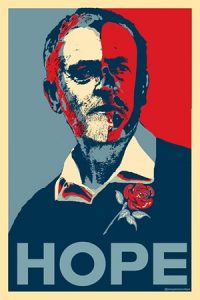Jeremy Corbyn didn’t win but he proved that a good salesman can make retail politics work
 If you didn’t know better, it certainly sounds like Jeremy Corbyn led his Labour Party to a stonking victory in the June 8 snap election.
If you didn’t know better, it certainly sounds like Jeremy Corbyn led his Labour Party to a stonking victory in the June 8 snap election.
He did and he didn’t.
Labour won enough seats and enough of a share of the vote to challenge Theresa May’s high-handed control of the country and its future.
And yet the narrative is all about Labour’s expectations-defying performance. Without wanting to rain on Mr Corbyn’s parade – he has done a brilliant job offering a positive vision of hope – it’s a bit like Donald Trump at a leaders summit. If Mr Trump shows up, stays on script and doesn’t elbow anyone aside, he is seen to have been a success.
So too Mr Corbyn’s Labour Party, which was tearing itself apart just a few months ago, which was unable to offer strong opposition in parliament, and which seemed in a torpor.
When Mrs May announced the election seven weeks ago, it seemed laughable to think that Labour could offer a credible change.
But it has won 13 million votes, a pretty good haul compared to the Conservative Party’s 13.5 million.
Labour won in marginal seats and won its best share of the vote since 2001 – beating Tony Blair, Gordon Brown, and Ed Miliband in 2005, 2010, and 2015.
And it showed that retail politics can work if the salesman knows what he’s doing.

